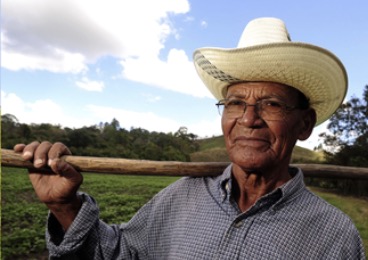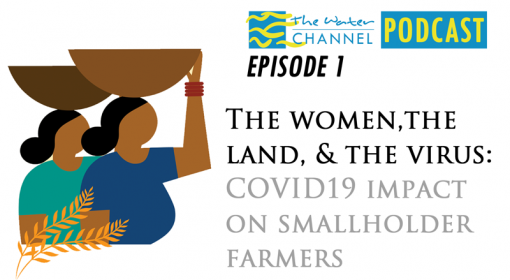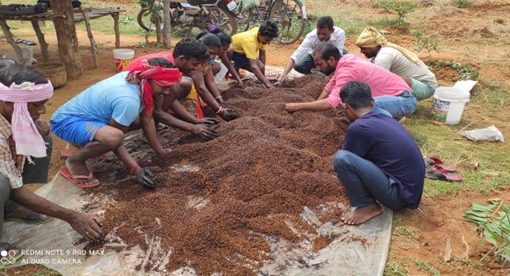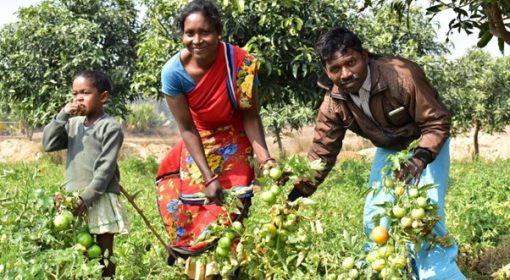Stories of impacts of Covid-19 on smallholder farmers and emerging new perspectives
By Long Hoang and Abraham Abhishek, with inputs from Irene Leonardelli, Lisa Bossenbroek, Hind Ftouhi, Sneha Bhat, and Meriem F. Hamamouche
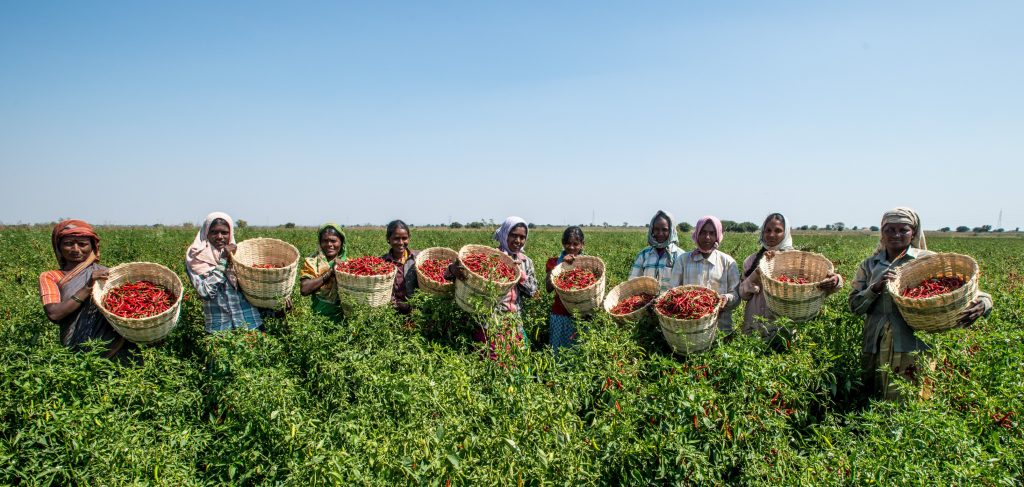
In the midst of the chaotic, massive and worrisome information sphere around us since the first major Covid outbreaks, we started caring about food. We were frustrated about empty food shelves: no more avocado for the salad, and the other day I could not find my favourite dried dates for the favourite couscous recipe. Many of us worried about toilet paper, naturally.
My thoughts, attention and frustration ended up with the supermarkets – one final node in the supply chain that feeds us every day. Hardly any fraction of my attention and thoughts go to the other end of the chain – the farmers, their crops, and their animals. And what about their lives? Is it safe to assume that Covid mostly affects cities? Perhaps farmers and rural communities are free from all the restrictions and the severe impacts that we keep hearing from the daily news? As it were, this is not the case.
Our recent conversation with a group of researchers about how Covid-19 effects smallholder farmers in India, Morocco and Algeria– especially the female share of this group– shows a very different picture. The impacts of the global pandemic on the rural communities, and how they affect work, life and wellbeing of farmers are as severe as those on major airlines, millions of restaurant workers, and overloaded hospitals.
Lockdown and price drops
The first group of impact relates to the travel restriction and difficulties in transporting agricultural produce. Small scale watermelon producers in the Draa valley (Morocco), had to leave part of the melons to rot on the field in April last year. The souks (local weekly markets) were closed down, very few traders had access to the farmers and naturally they could not buy up all the melons. Furthermore, the few traders who managed to reach farmers established a monopoly on the market, and offer a very low price to farmers. Having no other alternatives, they had to sell the watermelons at basically any price set by the traders.
Meena, a woman farmer from the Pune district in India shared that their fenugreek (a herbal plant from the family Fabaceae) also rotted in the field. Many cattle breeders in the region also could not sell their milk as all the milk collecting and transporting system came to a complete halt during the lockdown.
Labour shortage versus no opportunity to work
Many farmers who used to hire additional labour to work on their farms faced great difficulties looking for people. The lockdown results in no public/shared transportation in many countries – meaning no mobilization of labourers to work on the farm.
Every year in Algeria, labourers from as far as Timimoun region would travel for 600 km to the M’Zab Valley to harvest the iconic Deglet Nour dates. 2020 was a different year, whene skilled labourers were hard to find, even for 30% higher wages. Many farmers had a hard time harvesting all the dates. Many of the hired labours are women, and working on other farmers’ land is a major source of their income. In Morocco, the moqefs, where people would gather and offer themselves for work, were closed down. This created a lot of challenges for farmers seeking work during the pandemic.
Life goes on with much creativity and resilience
Despite all the major challenges with lost work, lower income, and personal safety at risk, farmers consistency show their resilience and creativity, to move on. Many inventive adaptations were observed by the research team in the three countries.. Women labourers in the Saiss Plain, Morocco, skipped the moquefs and went straight to farms to offer their work. While they risked being caught by the police and contract Covid-19, the much-valued income justified the risks. Also in Morocco, farmers in the Draa Valley started using social media (Whatsapp and Facebook groups) to create virtual moqefs, where many labourers were able to fiund work. Those without smartphones were helped by fellow-farmers.
Something beautiful also happened at the community level. In the M’zab oases in Algeria, many migrant farmers returned to their communities as they to lost their jobs elsewhere. Once back home, they took collective actions – such as restoring palm groves, rebuilding old irrigation infrastructure—that helped revitalise their communities. Through this process they also reconnected with their land, their ancestors, and the non-material heritage that resides in the places they call their hometowns. A sense of community and reconnection was visible among them.
Some farmers also returned from commercial crops to farming food crops for their own needs This shift reshapes the way farmers appreciate, and work with their soil and water on the farm. Zooming out to the regional level, many scientists would say this is a good, highly promising move towards building local resilience in the communities in the food system. Governments should actively incentivize this shift, supporting farmers in cultivating food crops.
Many inspiring experiences and actions are emerging by the day even as Covid-19 continues to unfold and impact rural communities. They deserve deep appreciation for standing up to the pandemic, often with only minimal support from the government. Besides, this period of upheaval has revealed and amplified some systemic issues that plague smallholder farming across the world– such as inadequate market access, insecure land tenure, women’s lack of access to social protection and other government services, and an overall lack of policy focus on smallholder farming. As and when we recover and move forward post-COVID, it would be critical to address these issues. We owe this much to those who make up 90% of all farmers across the world.
Listen to the podcast below featuring the researchers:
For further reading, download the open-access article ‘COVID-19 in Rural India, Algeria, and Morocco: A Feminist Analysis of Small-Scale Farmers’ and Agricultural Laborers’ Experiences and Inventive Practices’
